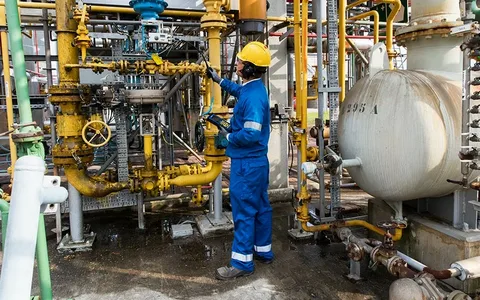Industrial equipment like high-speed spindles isn’t cheap, and although the idea of “run to fail” may seem attractive for maximum output at first, the long-term cost is unavoidable and will catch up to you. Even if the repair parts are cheap, the cost of downtime, rework, and even brand loyalty will hit you down the road at some point.
Instead of this approach, you should consider the financial benefits of regular maintenance of your machining or manufacturing equipment. What are those benefits? Well, we’ve put together a whole list, but for brevity’s sake, included in that list are things like reduced equipment downtime, enhanced productivity, increased equipment lifespans, and lower long-term maintenance costs. All of which will save you money, if not increase your revenue for years.
Now that we have your attention, let’s look at five financial benefits (with some extras at the end) of regular industrial equipment maintenance and why they should be important to you and your industrial operations.
- Minimize Equipment Downtime
One of the biggest obstacles to a manufacturing industry’s profitability is equipment downtime. It stops production and adds a layer of pressure to the supply chain to find and deliver the correct repair parts to fix the equipment. That also doesn’t consider the time it may take to fix the equipment.
What are the results?
Well, lost production, a possible paid workforce not being productive, and an unhappy customer who is delayed in getting the parts they expected from your operation. Downtime is usually not preferred if you’re delivering products manufactured with high-speed spindles. Ever.
This doesn’t mean unplanned downtime can always be avoided. Unexpected equipment failure is a part of the industrial process. However, so is minimizing equipment failure whenever possible. Part of doing that is through regular equipment maintenance.
Other benefits to avoiding equipment downtime include avoiding lost revenue and increased costs.
2. Enhanced Productivity
Tying in nicely with minimized equipment downtime is the enhanced productivity of your staff. If the equipment is well maintained, it increases trust in the workforce operating it. As a result, the workforce will grow more confident and productive thanks to reliable equipment. You’ll end up with finished products that meet specifications, are delivered on time, and meet the customer’s expectations.
3. Equipment Lifespan Expands
The longer your equipment lasts, the lower your long-term costs. That’s a given. However, your long-term costs can be further reduced if you regularly maintain your equipment to the point where the repairs are completely minimized to the unexpected rather than a mix of unexpected and self-induced. Part of this solution also includes ensuring your staff and operators are well-versed in the maintenance of your equipment. This means ensuring they are initially and regularly trained to ensure your equipment is operating at its peak potential without sacrificing quality.
If you do this, your equipment’s lifespan will increase, the need for new equipment will be more effectively planned for, and your return on the initial investment in that equipment will grow exponentially.
4. Lower Maintenance Costs
It’s not hard to imagine that if you take measures to expand or extend your equipment’s lifespan, you’ll eventually lower the maintenance cost. Some may disagree and say buying a new piece of equipment will reduce the operating cost over the first few years because all of the cost is upfront.
That may be true for a start-up, but, at the same time, you’ll still eventually get to the point as a start-up where you’ve been running that equipment for a few years. If you’re proactive with your maintenance, you can significantly lower your end-to-end maintenance costs by conducting the manufacturer’s recommended maintenance and practicing good maintenance fundamentals.
In addition, planned or predictive maintenance to extend your equipment’s life requires planned downtime. Corrective maintenance is often unplanned, leading to downtime that almost always costs more and reduces productivity. And if the result is a catastrophic failure, you may pay for the entire piece of machinery twice.
5. Improve Your Equipment’s Resale Value
Only a few people would include this here. They may push for savings on the cost of energy or inventory control in this spot, but let’s face it, equipment isn’t cheap. And many people start their industrial manufacturing businesses by buying used equipment. And if you’ve ever purchased used equipment, you want to know if it was well maintained. Yes, you’re buying it at a reduced cost. But you’re also buying wear and tear. If it’s been well maintained through regular maintenance, you’re more likely to buy it compared to other models.
If you’re looking to sell your used, well-maintained equipment, you’re more likely to find a willing buyer at a fair market price, if not more. That’s something to consider regarding your return on investment and potential profit overall.
Other Benefits of Performing Regular Industrial Equipment Maintenance
As noted in the introduction, we said we’d provide you with a few more benefits outside the main five mentioned above. Of course, some of them will be obvious, but they are still worth mentioning. They include:
- Improved Energy Efficiency
- Reduced Accident Risks on the Jobsite
- Improved Compliance
- Better Decision Making and Inventory Management
In addition to the primary five listed above, these will ensure your operations maximize your financial returns while guaranteeing your investment over the long term.
In Conclusion
A more appropriate way to think about manufacturing operations and the maintenance that comes with them is that they’re a long-term investment that has the potential for productivity growth and a goal of maximizing your return on investment wherever possible. Regularly maintaining your industrial equipment will often be the major contributor to that return. Along the way, you’ll see marked improvements in staff training, minimal equipment downtime, and increased customer satisfaction.










… [Trackback]
[…] There you will find 7323 more Info on that Topic: news969.com/5-financial-benefits-of-regular-industrial-equipment-maintenance/ […]